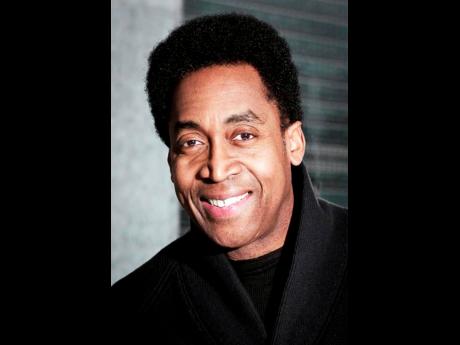Religion & Culture | Honour thy parents … Honour our parents and we honour God
“Do not neglect the works due to the gods and the fathers! Let your mother be to you like unto a god! Let your father be to you like unto a god!” Aittiriyaka Upanishad 1.11.2 (Hinduism)
Without a wise teacher, the many truths inscribed in sacred books are never fully understood. Unfortunately, we glaze over the true meaning of so many timeless principles. For example, the Fifth Biblical Commandment reads: ‘Honour thy mother and thy father’. Why is this teaching so essential? Why is it emphasised in diverse cultures and scriptures?
A few examples of these scriptural injunctions read:
“Honour the body that bore thee, and the breasts that gave thee suck, maintain thy parents, for thy parents took part in thy creation. For man owes his existence to God, to his father, and to his mother...” (Legends of the Jews Vol. III)
The commandment or the divine counsel to honour one’s parents is rooted in the foundational truth that we are co-creators of life; that we exist only because of our parents and God’s essence (the breath of life). God, we can argue, needs us to fulfill His designs. Yes, we need God, but the Maker also needs us. Our parents, like us, are co-creators in this elaborate design called Life.
This brings us to the creation story and its merits. We can argue ad infinitum over its credibility. Is it literally factual or mythological? We will never know. What is certain is that our creation was the work of a triad – man (husband), woman (wife), and the breath of life (God). This explains why Hindu scriptures urge us to treat our parents as if they were gods.
The ancients knew the far-reaching meaning of this counsel.
WHAT IT ENTAILS
Indeed, there is no greater virtue than treating our parents with veneration. We cannot talk about a relationship with Christ if we marginalise our parents. We cannot talk about honouring God without first honouring our parents. In fact, an atheist who honours his parents (in deeds) is closer to God than a believer who disrespects his parents.
Honouring our parents entails the following:
n GRATITUDE: Being thankful for life. We must remember that every experience in life (good and bad) is necessary for the growth and evolution of soul.
n PATIENCE: As our parents age, they require more of our attention, including financial. We must resist Western values that have sidelined our elders. Neglecting our parents or leaving them in the care of others when they are most vulnerable has karmic repercussions.
n SACRIFICE: We must be willing to go beyond expectations to ensure their well-being.
Of course, not every parent is worthy of being called a parent. Parenting requires its own set of values. Not every mother and father will measure up to the idyll.
How then should we react to abusive parents? Do they deserve our respect? Should we respond in kind to their immodesty, selfishness, and meanness?
With maturity, we realise that every situation is put before us as a trial. How we respond will determine who we are, and in some cases, what we become. To put this in context, I refer to a noted rabbi who discussed the relationship between Abraham and his father narrated in the Midrash (Bereishit Rabba 39:7).
The rabbi explained, “It was only upon the death of his father that Abraham received the Divine command to emigrate to Israel. This was so that people should not say: ‘What kind of a son is this that leaves his old father all alone?’ And yet, according to tradition, Abraham’s father was not only an idol worsh ipper, but also an idol manufacturer! Abraham’s father was essentially evil. Yet Abraham’s honour of his father took precedence, so to speak, over serving God more directly.” (https://www.aish.com/atr/Honoring_Abusive_Parents.html)
It follows that gratitude and reverence should continue after our parents’ transition (death), hence the importance of ancestral veneration (not ancestral worship as commonly thought).
FRACTURE OF THE FAMILY UNIT
Although Christians disavow ancestor veneration, biblical verses suggest that we cannot existentially extricate ourselves from our parents.
I cite the following:
“From the standpoint of the gospel, they are enemies for your sake, but from the standpoint of God’s choice, they are beloved for the sake of the fathers.” (Romans 11:28)
Today, many of our problems are related to the fracture of the family unit. Children are empowered by new cultural norms to challenge the authority of their parents. In the United States, children have sued their parents for a range of reasons, including financial support (See: https://www.washingtonpost.com/business/economy/daughter-18-sues-parents...)
In India, a man sued his parents because he did not give consent to be born (See: https://time.com/5524869/india-anti-natalism-sue-parents)
In China, a boy, no more than 10 years old, sued father for return of his lucky Lunar New Year money (See: https://www.scmp.com/news/china/society/article/2186380/chinese-boy-10-s...)
The number of lawsuits filed by children is increasing and so is disrespect and neglect of our ageing parents.
The repercussions of our actions are swift and severe, if only we knew.
I see the moral decay and can only recount Hosea 4: 6 – “My people are destroyed for lack of knowledge.”
- Dr Glenville Ashby is the award-winning author of the audiobook, ‘Anam Cara: Your Soul Friend’ and ‘Bridge to Enlightenment and Creativity’. Email feedback to columns@gleanerjm.com and glenvilleashby@gmail.com, or tweet @glenvilleashby.


